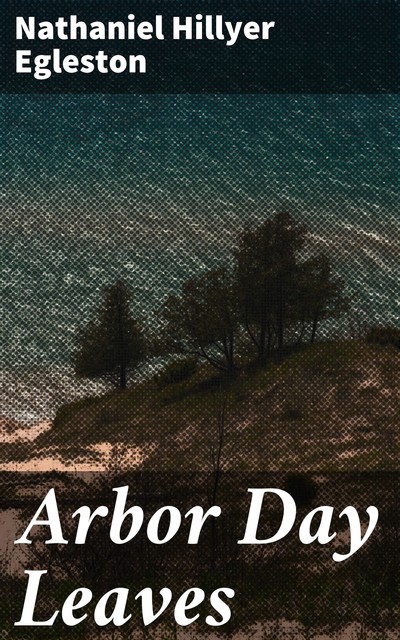We use cookies to improve the Bookmate website experience and our recommendations.
To learn more, please read our Cookie Policy.
To learn more, please read our Cookie Policy.
Accept All Cookies
Cookie Settings

Read in our apps:
iOS
·Android
Nathaniel Hillyer Egleston
Arbor Day Leaves
Notify me when the book’s added
Impression
Add to shelf
Already read
Report an error in the book
Share
Facebook
Twitter
Copy link
To read this book, upload an EPUB or FB2 file to Bookmate. How do I upload a book?
In “Arbor Day Leaves,” Nathaniel Hillyer Egleston presents a thoughtful exploration of the significance of trees and nature in American society during the late 19th century. The text artfully combines lyrical prose with scientific observation, reflecting the burgeoning conservationist movement of the time. Through a rich tapestry of essays, Egleston articulates the cultural, aesthetic, and environmental values of trees, illustrating their impact on the American landscape and identity. His writing, resonating with the Romantic literary tradition, invites readers to appreciate the natural world as a source of beauty and inspiration, while promoting a deeper ecological awareness that was ahead of its time. Egleston's own background as a botanist and an advocate for environmental stewardship motivated his passionate discourse on the importance of trees. His work in forestry and horticulture, combined with his keen literary sensibility, positions him as a vital figure in the intersection of science and literature. Egleston'Äôs advocacy for Arbor Day highlights his belief in the necessity of communal responsibility toward nature, reflecting the era's growing consciousness about environmental conservation. “Arbor Day Leaves” is a compelling read for anyone interested in the intricate relationship between humanity and nature. Egleston's profound insights and poetic language serve as a timeless reminder of our duty to protect and cherish our natural world. This work not only enriches the reader's understanding of environmental literature but also serves as a clarion call to cultivate a deeper connection with trees and the planet.
more
This book is currently unavailable
68 printed pages
- Copyright owner
- Bookwire
- Original publication
- 2019
- Publication year
- 2019
Other versions
Have you already read it? How did you like it?
👍👎
fb2epub
Drag & drop your files
(not more than 5 at once)

